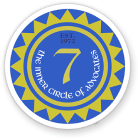Offshore accidents refer to accidents that occur on oil rigs, platforms, and other marine structures located off the coast, as well as accidents on vessels operating in open waters, such as drill ships and floating production systems. Given the inherently dangerous nature of offshore work, coupled with the volatile environment of the open ocean, these accidents can be particularly severe.
Explosions & Fires
The offshore environment, especially in oil and gas sectors, is abundant with flammable materials. Combustible gases and liquids can easily ignite if not handled properly. Even minor operational oversights can trigger devastating fires or explosions.
Beyond the immediate threat to human life, offshore fires and explosions have ripple effects, causing major environmental disasters.
Equipment Failures
Offshore operations depend on a range of machinery and equipment, from drilling apparatuses to cranes and from communication systems to safety gear. Faulty or poorly maintained equipment can malfunction, endangering workers and halting production.
Helicopter Accidents
Helicopters are the primary means of transportation for offshore workers, ferrying them between the mainland and offshore installations. Negligence or mechanical failures can lead to tragic helicopter accidents, which can be especially devastating given the remoteness of offshore sites, which may complicate rescue operations.
Slips, Trips & Falls
The combination of open waters, weather conditions, and operational activities means offshore platforms are often wet and slippery. Even a simple slip can have dire consequences if a worker falls overboard into freezing waters or into heavy machinery, leading to hypothermia, crush injuries, amputation, or even death.
Vessel Collisions
Offshore areas can be bustling with marine traffic, including supply ships, tankers, tugboats and barges, and other vessels. Miscommunication, navigation errors, or technical malfunctions can result in collisions, potentially causing oil spills, fires, or vessel losses. Allisions (collisions with fixed objects) are another risk.
Diving Accidents
Commercial diving plays a crucial role in offshore operations, especially for maintenance, inspection, and repair tasks. However, it's fraught with risks. Divers can suffer from decompression sickness if they surface too quickly, drown if their oxygen supply is disrupted, or get injured from underwater equipment or marine life.
Arnold & Itkin is here to help seamen, longshoremen, harbor workers, oil and gas workers, maritime passengers, and families after offshore accidents in national and international waters.
Repercussions of Offshore Accidents & Injuries on Crews & Their Families
The impact of these incidents on workers' lives is profound, extending well beyond the immediate physical pain. Often, they grapple with significant financial strain as mounting medical bills coincide with lost wages, putting not only the worker but their entire family under stress. Moreover, the trauma from such incidents can manifest emotionally and psychologically, leading to PTSD, anxiety, and depression.
The repercussions don't stop there. Severe injuries can drastically reduce an individual's quality of life, limiting activities they once loved. The severity of an offshore injury can have long-lasting career implications, potentially limiting the kind of work they can pursue or even preventing them from reentering the workforce altogether.
If you've been injured or have lost someone you love, get the help you need. Our offshore injury lawyers are standing by: (888) 346-5024.


























